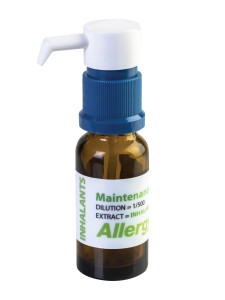 Allergies can manifest themselves in a host of different ways.
Allergies can manifest themselves in a host of different ways.
The most common are the hay fever-variety, but there are plenty of other symptoms with their roots in allergy.
Asthma—Asthma is frequently allergy-related. Allergies cause the airways to swell, obstructing normal breathing. The majority of my asthmatic patients show marked symptom relief with allergy treatment.
Eczema/Hives—Most people think these skin problems are a dermatology issue, but they often are caused by allergic inflammation. Eczema sufferers often cycle in vain through multiple dermatologists and prescription creams. However, no amount of topical medication can fix the underlying allergy.
Chronic sinus and ear infections—One or two sinus infections a year may be normal, but more may indicate allergy. Allergy causes the lining of the sinuses and ears to swell, so they don’t drain properly. When mucus accumulates, bacteria can flourish.
Chronic cough—Allergies lead to mucus production in the nose and throat (post-nasal drip), which irritates the lining of the airways, causing you to cough. Frequent coughs, or coughs lasting beyond seven to 10 days, can indicate allergy.
Conjunctivitis (pink eye)—Repeated or long-lasting conjunctivitis is a strong indicator of allergies. Allergies cause the eye and eyelid to become inflamed. This can lead to itchy or painful eyes, eye crusting or mucus production.
Gastrointestinal problems—Food allergies can contribute to many of the above symptoms and also to irritable bowel syndrome (IBS) symptoms (gas, diarrhea, bloating, cramps).
Fatigue—Allergy symptoms can interrupt sleep patterns, leading to allergic fatigue. Further, allergy pills, such as antihistamines or decongestants, can derail regular sleep rhythms. It also is possible that the immune system’s internal war to fight off allergens can sap your energy.
Headaches—Many of my patients with obvious allergy symptoms, such as hay fever, also complain of headaches. This may result from sinus pain and pressure. Some scientists think it also could result from allergic inflammation in the neck muscles or blood vessels in the head.
Additionally, I have found a link between allergy and eosinophilic esophagitis (inflamed esophagus) and interstitial cystitis (chronic inflammatory bladder condition).
In short, when the immune system is depleted by constantly fighting off allergens, your health suffers in a variety of ways.
If you suspect you have allergies, talk to your physician about getting allergy treatment—either through shots or through sublingual (under-the-tongue) allergy drops.
Stuart H. Agren, MD, opened the Family Allergy Clinic, in the East Valley, in 1985. He has helped more than 15,000 patients overcome food and pollen allergies, using sublingual allergy drops. Peers recently chose him as a Phoenix Magazine Top Doc. His offices can be reached at (480) 827-9945. Visit the website at www.FamilyAllergyClinic.com.

